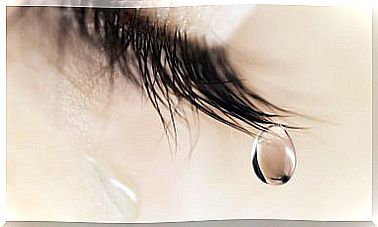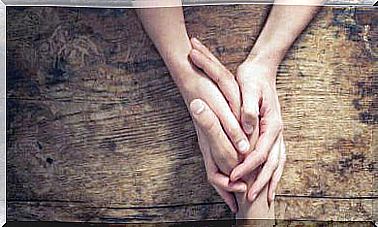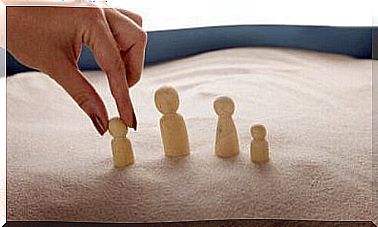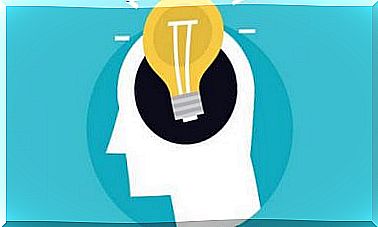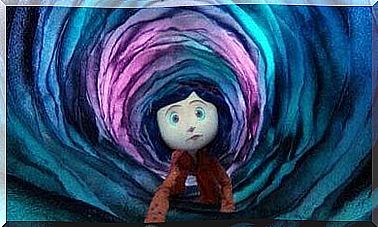Forget Or Learn To Live With A Memory

Can we really forget what made us suffer? Do we really forget or do we actually learn to put it aside in order to live without it continuing to hurt us? Perhaps forgetting is not a question of will, but the fact remains that we can help our mind to lose the memory.
We have all lived through certain situations, relationships and moments that have made us happy, but there comes a time when happiness breaks, it ends. Some people disappear, other times love ends or distance creates obstacles. What can we do to make these memories stop hurting us?
Perhaps the first idea to consider is that trying to forcibly forget doesn’t work. The more we try to suppress a memory, the more it will appear in our mind as a recurring thought. It was and will continue to be, albeit in a different way, but the memory remains. What needs to be done is to learn to become aware of its existence, but without it hurting.
It is up to us to give a new value to this thought, to integrate it into the history of our existence without causing pain. A good speech on an inner level is as follows:
“It made me happy, I learned from all the bad things that happened and I keep the good memories in my memory. If I try to forget, it will appear more strongly in my consciousness and acquire more power to cause negative emotions. Everything that was part of my past is now part of my history, so forgetting it shouldn’t be a point to work on ”.
Stopping talking about it doesn’t mean forgetting
Despite all the efforts we can make to get rid of what is causing us pain, the most likely thing is that we will not succeed. Not talking about the pain, dedicating ourselves to meeting new people, not writing to another person because we hold a grudge or not forgiving the pain that others have caused us does not mean forgetting.

Keeping themes that hurt us pending or recurring does not mean forgetting, it means preventing them from emerging in such a way as to be able to control their effects. Unfortunately, they will continue to remain so, packing them only means keeping the memories in an unsafe place, since only by touching them, they will start to hurt.
When we forget, it no longer hurts, we no longer remember, we can no longer feel what we felt at that moment, but it is not a question of removing it, but of erasing it. Since this is an impossible task (we don’t have a button in our mind that messes with anything unpleasant or unwanted), it would be more appropriate to make an effort to do what is in your hands. Consequently, it would be useful to reflect on the value that this memory has for us, how we want to keep it, what continues to make us feel bad and why.
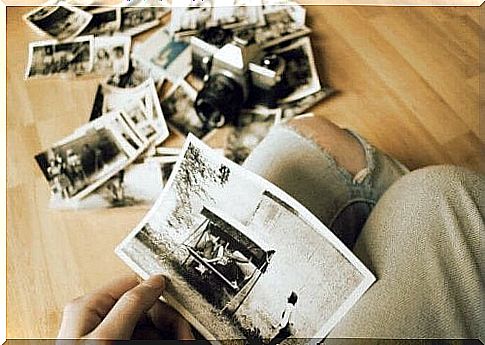
We have the opportunity to process experiences and we can prevent them from taking control over us. We are stronger than memories, than thoughts, we are the ones who give meaning to our memory, as we are, in essence, who give it shape.
Now it’s there, but it doesn’t hurt
From the moment we complete a reading and process it, the memory will reside in us. We will remember how it was the time we spent with our grandparents, we will remember that first love that marked us so much, we will remember when we played or talked on the phone with our friends, travels, beers drunk in the summer. These memories continue to exist within us, deprived of association with other negative memories, so they will shine brighter.

Striving to forget at all costs puts in place a job that leads only to frustration. I don’t want to forget the good things, only the ones that made me feel bad and this is a process that requires our intelligence, as well as some time and patience.
On the other hand, if it hurts us, it means that it happened, because we feel it, because we are alive. Let’s not remove it from our mind, let’s give it a new value, a new place. Let’s leave it alone, but let’s deprive it of the importance it has already lost, of everything it has of us, integrating it in a new way into our history.
